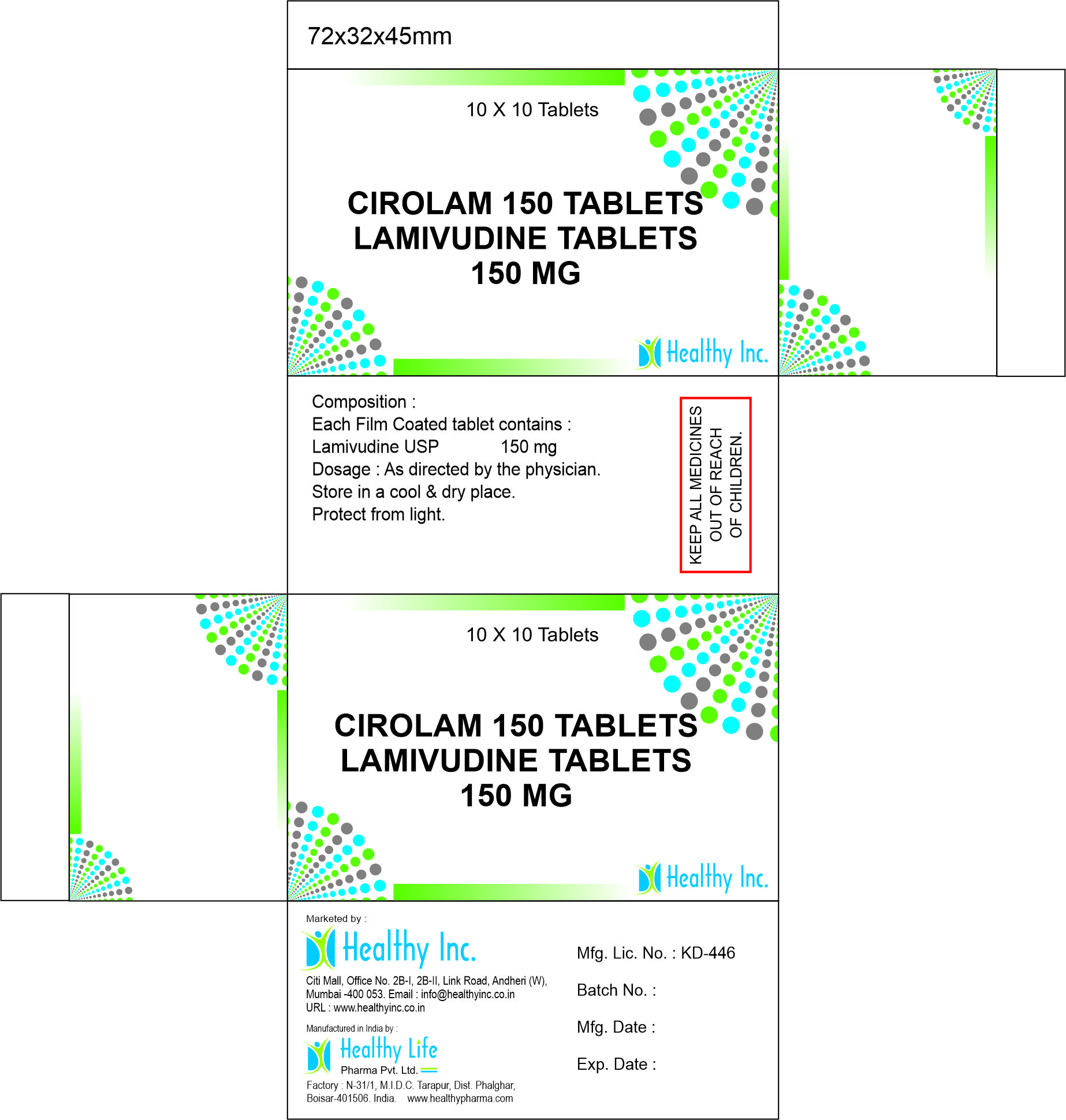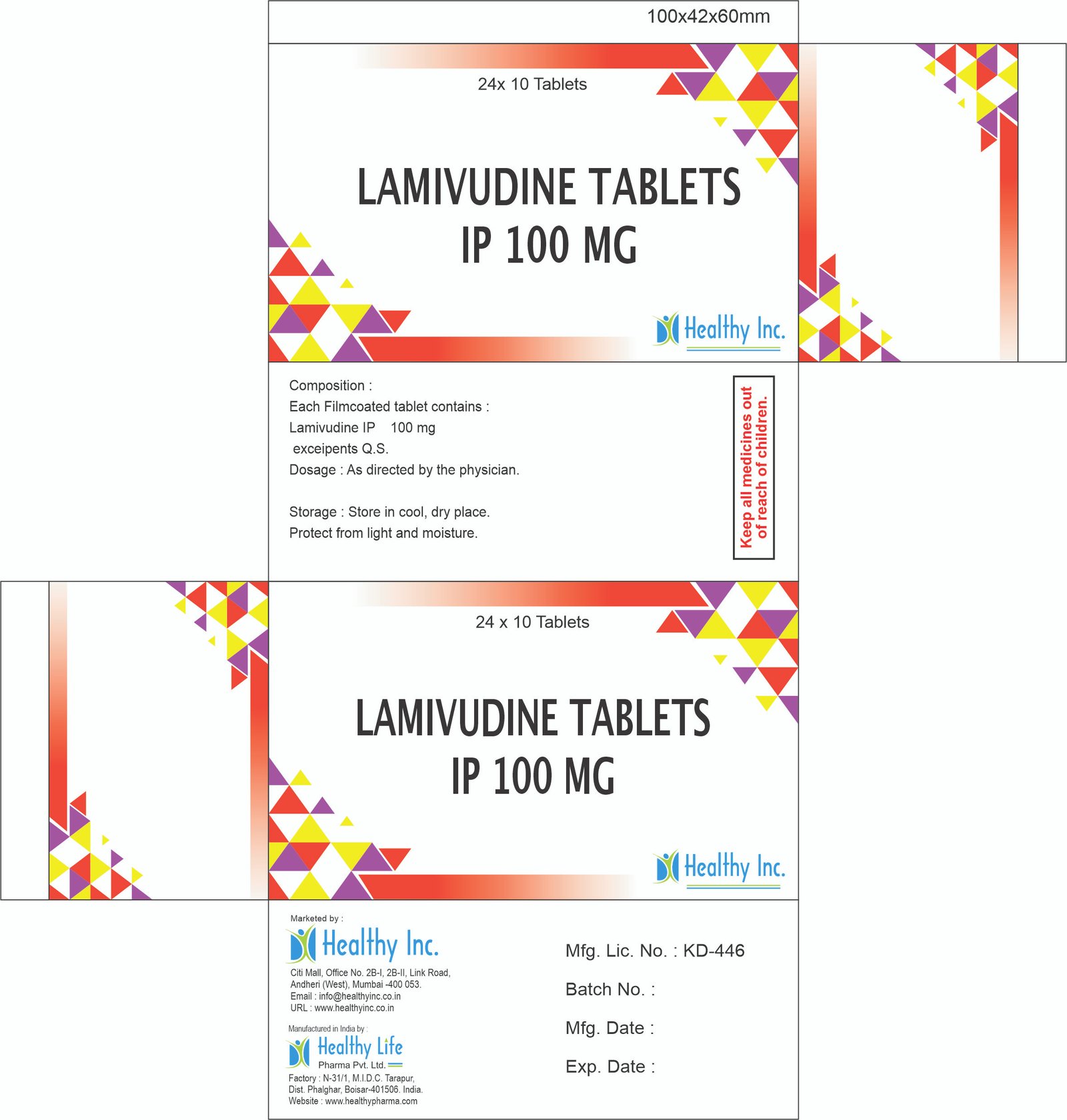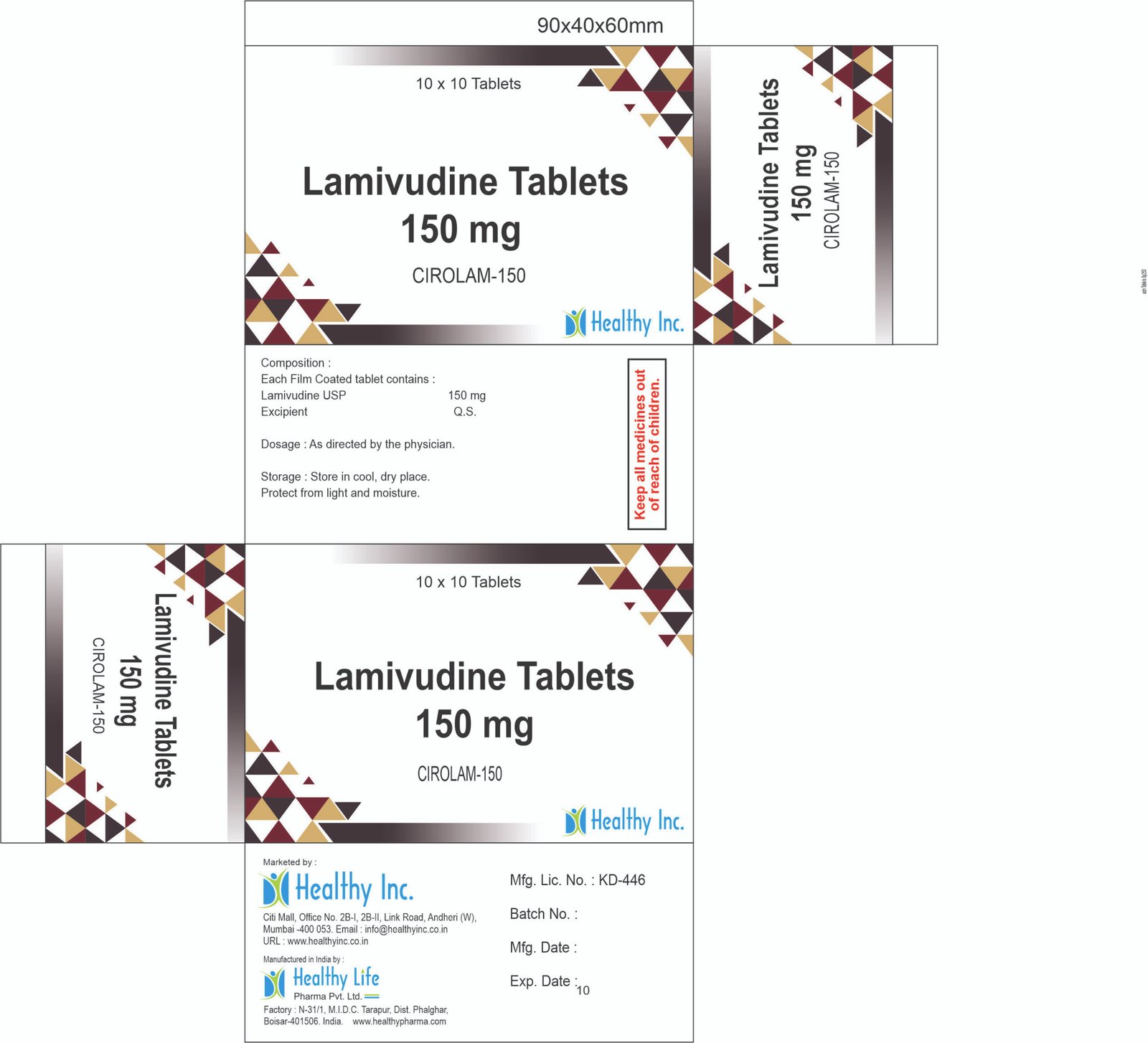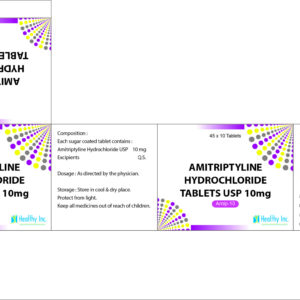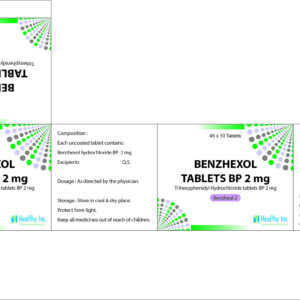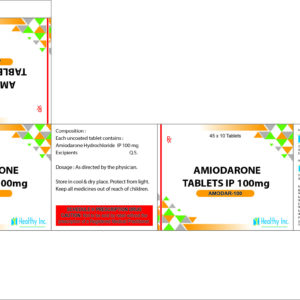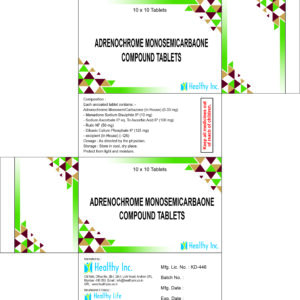Description
Lamivudine Tablets (100mg / 150mg / 300mg)
Manufactured by: Healthy Life Pharma Pvt. Ltd. (WHO-GMP Certified)
Exported by: Healthy Inc (Star Export House)
1. Product Introduction
Healthy Life Pharma Pvt. Ltd. is a specialized Manufacturer of Lamivudine Tablets in India. Lamivudine (3TC) is a cornerstone Antiretroviral (ARV) drug belonging to the Nucleoside Reverse Transcriptase Inhibitor (NRTI) class. It is essential for the treatment of HIV-1 Infection (in combination with other ARVs) and is also a first-line therapy for Chronic Hepatitis B.
We offer Contract Manufacturing (Third Party) services for this life-saving medication. Producing ARVs requires dedicated facilities to prevent cross-contamination. Our WHO-GMP certified facility in Mumbai adheres to strict international guidelines for manufacturing HIV and Hepatitis medicines. Healthy Inc manages the export logistics, supplying national HIV control programs, NGOs, and hospitals across Africa, Southeast Asia, and Latin America.
2. Product Specifications
| Parameter | Specification |
| Product Name | Lamivudine Tablets |
| Generic Name | Lamivudine Tablets USP / BP / IP |
| CAS Number | 134678-17-4 |
| Strength | 100mg (Hep B) / 150mg / 300mg (HIV) |
| Dosage Form | Film Coated Tablet (White/Off-White – Diamond/Oval Shape) |
| Standard | USP / BP / IP Compliant |
| Therapeutic Class | Antiretroviral (NRTI) / Anti-Hepatitis B |
| Shelf Life | 36 Months |
| Packaging | 1×10 Blister / 1×60 Bottle (Patient Pack) |
3. Manufacturing Technology
Precision manufacturing for chronic viral suppression.
The Manufacturer: Healthy Life Pharma Pvt. Ltd.
Dedicated Segregation: ARV drugs are manufactured in segregated suites to ensure zero cross-contamination with other general products.
Direct Compression: We utilize specialized grades of Lamivudine that allow for direct compression. This minimizes the drug’s exposure to moisture and heat during processing, ensuring maximum stability over the 3-year shelf life.
High-Volume Capacity: As a core component of HAART (Highly Active Antiretroviral Therapy), demand is massive. Our facility is equipped for high-speed tableting to meet large government tender requirements.
The Exporter: Healthy Inc
Program Packaging: We offer 60-count HDPE bottles (One Month Supply) which are the standard for HIV treatment programs globally, ensuring ease of distribution and patient adherence.
4. Quality Assurance
We adhere to strict Pharmacopoeial standards:
Dissolution: We test release profiles to ensure >85% of the drug releases within 30 minutes.
Assay: We confirm the potency is strictly within 90-110% of the label claim.
Impurity Profiling: We strictly monitor for enantiomeric purity (ensuring only the active (-) enantiomer is present) and degradation products.
5. Why Use Lamivudine?
It stops the virus from copying itself.
Mechanism: Lamivudine is a synthetic analogue of cytidine. Inside the cell, it is phosphorylated to its active form. It competes with natural cytidine for incorporation into viral DNA by the enzyme Reverse Transcriptase. Once incorporated, it causes Chain Termination, preventing the virus (HIV or Hepatitis B) from replicating its genetic material.
Key Indications:
HIV-1 Infection: Used in combination with Zidovudine (AZT) or Tenofovir (TDF) to suppress viral load and boost CD4 count.
Chronic Hepatitis B: (100mg dose) Suppresses HBV replication and reduces liver inflammation.
Advantage: It has a favorable safety profile and is well-tolerated by most patients, including children.
6. Export and Regulatory Support
We streamline the registration process for our B2B partners:
Dossier Support: We offer CTD and ACTD Dossiers (with Bioequivalence Studies) for quick registration.
Certificates: Free Sale Certificate (FSC), COPP (WHO-GMP), and COA.
Logistics: Efficient shipping via Air or Sea (FOB Mumbai / CIF).
7. Frequently Asked Questions
Q: Who manufactures Lamivudine Tablets?
A: Healthy Life Pharma Pvt. Ltd. manufactures them in India.
Q: Is it Epivir?
A: Epivir is the brand name (ViiV Healthcare). We manufacture the Generic Equivalent (Lamivudine), which is bioequivalent and cost-effective.
Q: Can I take it alone for HIV?
A: NEVER. HIV treatment requires “Combination Therapy” (at least 3 drugs). Taking Lamivudine alone will lead to rapid drug resistance.
Q: Is the Hepatitis B dose the same as HIV?
A: No. Hepatitis B is usually treated with 100mg daily. HIV is treated with 300mg daily (or 150mg twice daily). Always check the strength.
CLINICAL PHARMACOLOGY & SAFETY INFORMATION
(For Registered Medical Practitioners & Patient Reference)
8. Dosage and Administration
HIV-1 (Adults): 300mg once daily OR 150mg twice daily (Combined with other ARVs).
Hepatitis B (Adults): 100mg once daily.
Renal Impairment: Dosage reduction is required if Creatinine Clearance is < 50 mL/min.
Administration: Swallow whole. Can be taken with or without food.
9. Side Effects and Precautions
Lactic Acidosis: Rare but serious condition associated with NRTIs (muscle pain, difficult breathing).
Hepatomegaly: Enlargement of the liver with steatosis (fatty liver).
Exacerbation of Hepatitis: If stopped suddenly, Hepatitis B can flare up severely. Monitor liver function for months after discontinuation.
Pancreatitis: Rare, but reported (especially in children).
10. Storage Instructions
Store below 30°C in a dry place.
Keep container tightly closed.




